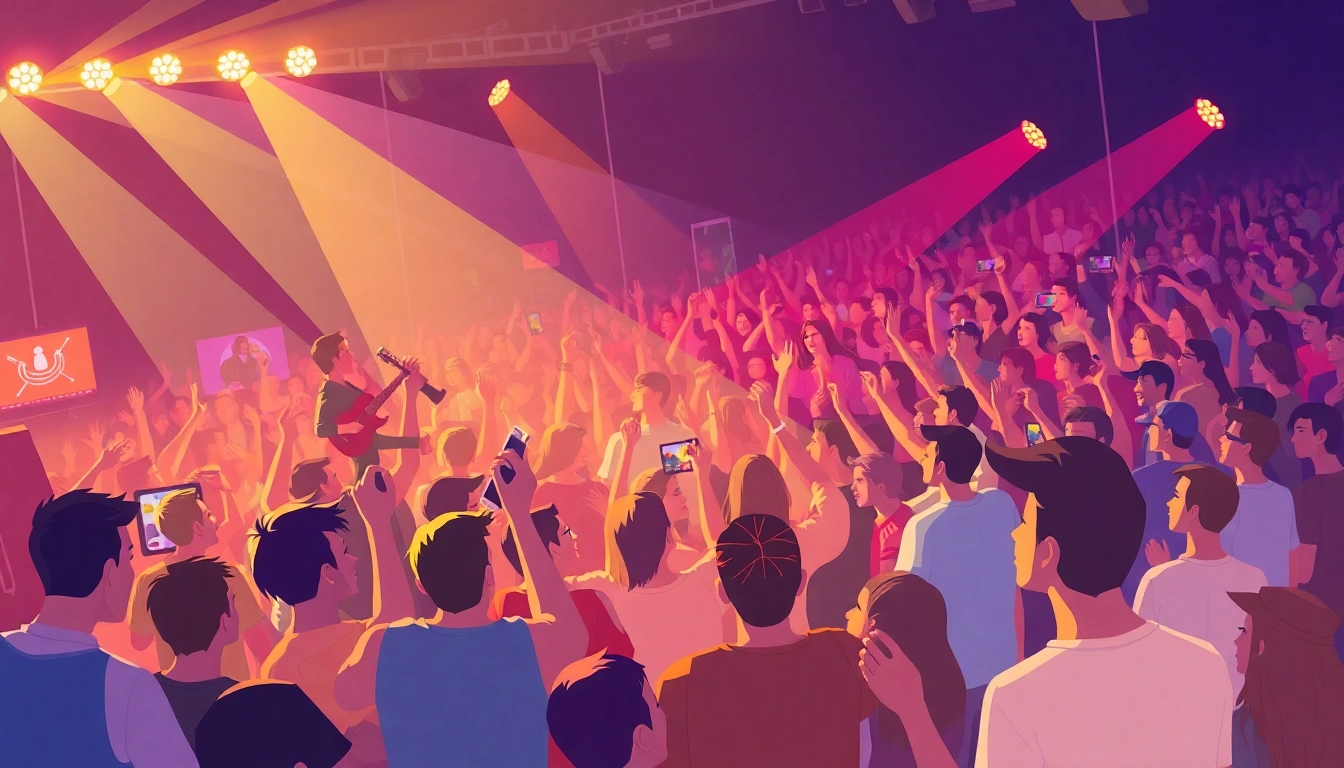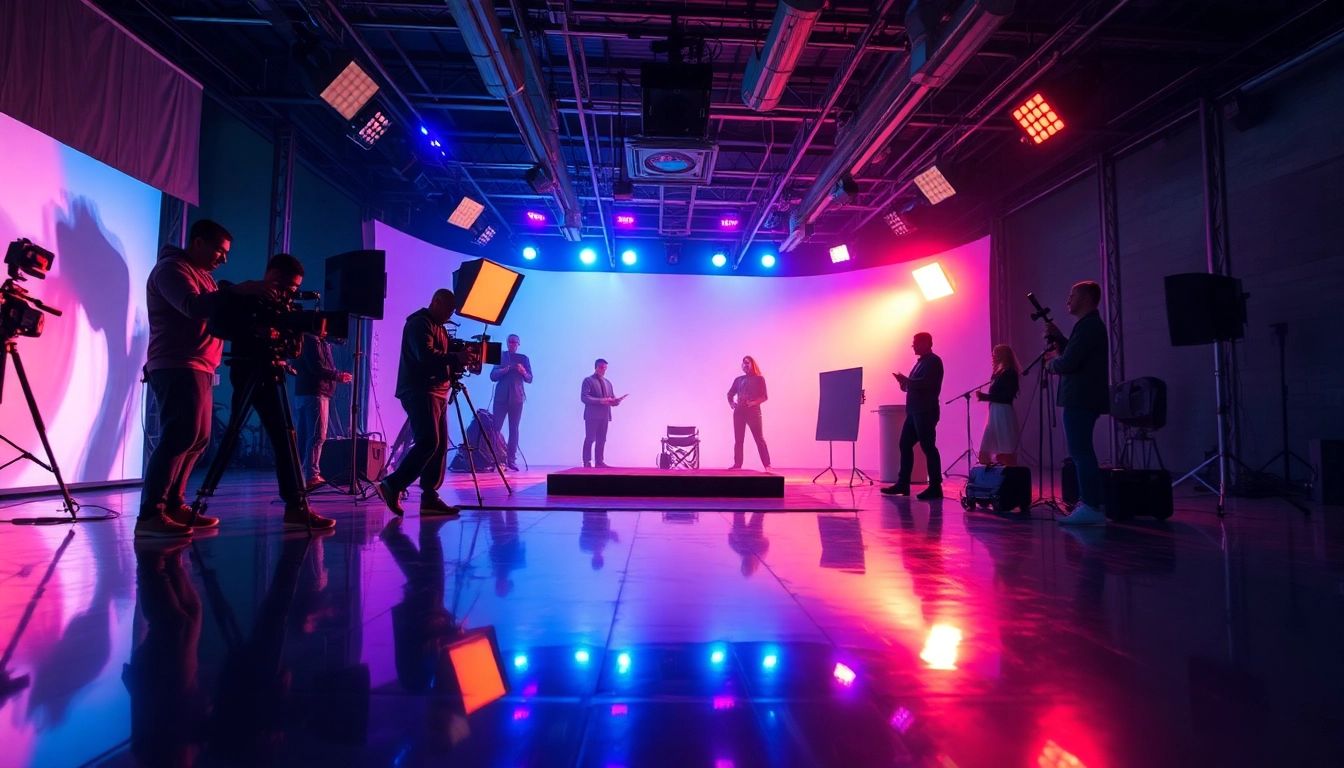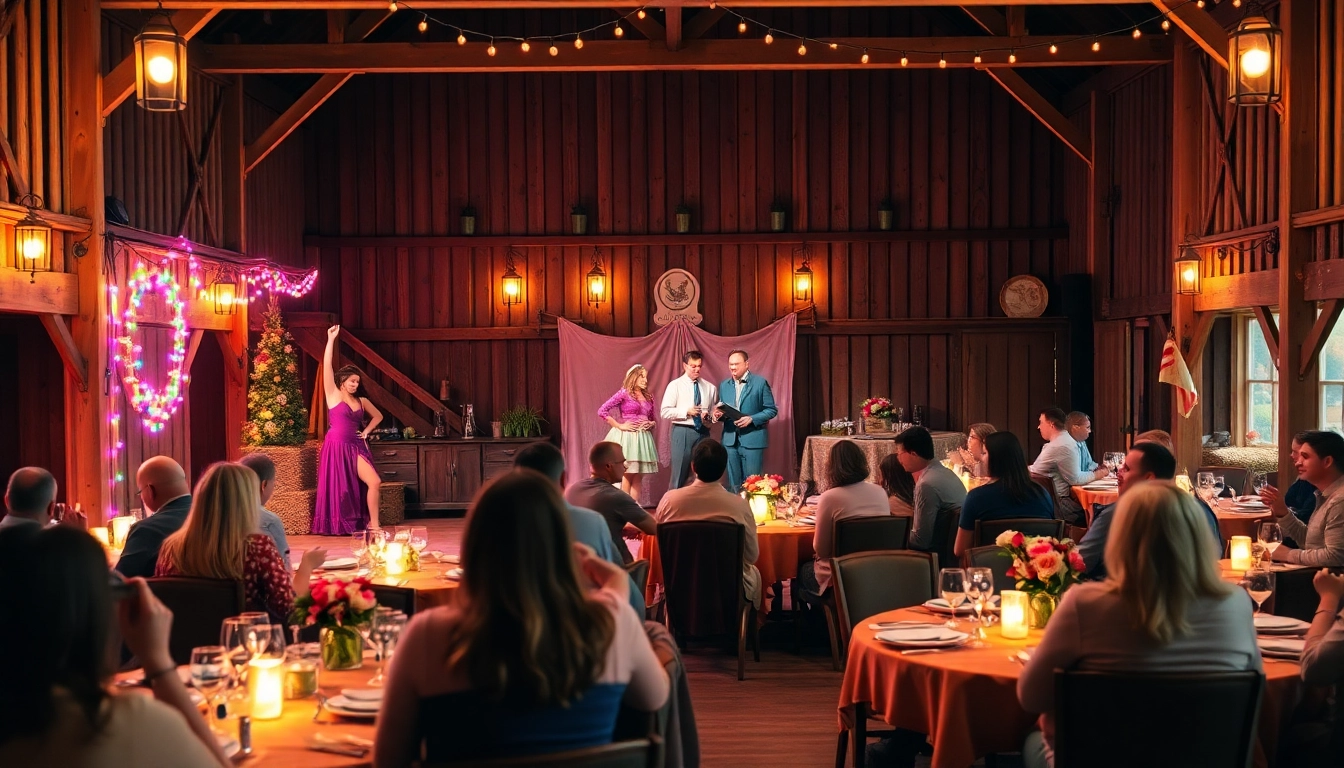Understanding the Psychology of Live Music Fans
What Motivates Live Music Fans?
Live music fans are not just casual listeners; they are passionate participants in a vibrant cultural phenomenon. Understanding what motivates them can provide profound insights for event planners, marketers, and artists alike. Fans of live music are typically driven by a variety of factors, such as the desire for unique experiences, social connection, and emotional expression. Unlike recorded music, live performances offer an authentic experience, where fans feel a connection to the artist and fellow attendees.
Many fans attend live shows to escape the daily grind and immerse themselves in an environment that celebrates creativity and artistic expression. The communal aspect of concerts allows fans to bond with others who share similar tastes and interests. This social engagement can be a powerful motivator—creating memories that fans cherish long after the final notes have faded. This environment, full of energy and emotion, is where live music enthusiasts find their sense of belonging, making it essential for organizers to understand these motivations to create engaging and enjoyable experiences.
The Emotional Connection to Live Performances
Emotions are at the heart of the live music experience. Fans often seek a personal connection with the music and the artists, leading to intense emotional responses. Live performances push the boundaries of human experience, evoking feelings that recorded music may not fully capture. When a favorite artist takes the stage, the energy in the crowd amplifies, creating a shared emotional atmosphere that is difficult to replicate. This emotional landscape is filled with excitement, nostalgia, joy, and sometimes even catharsis, which makes each concert a unique tapestry of feeling.
Research has shown that music can trigger the release of neurotransmitters like dopamine, correlating with pleasure and happiness. Therefore, fans may attend concerts not just for the music but for the emotional highs and lows that accompany it. This emotional connection plays a significant role in fan loyalty, as deep-seated feelings often foster timeless memories that reinforce their love for specific artists and genres.
Social Dynamics among Live Music Fans
The social dynamics among live music fans can be complex and fulfilling. Attending a concert often means joining a community, where individuals connect over shared interests and experiences. This social interaction typically begins even before the event, with fans discussing line-ups, sharing tickets, and organizing meet-ups, all fueled by the anticipation of the experience to come.
Moreover, the concert venue itself can provide a unique social hierarchy. Fans often meet fellow enthusiasts in the queue, exchanging stories and recommendations, thus fostering a sense of camaraderie. The shared experience within a crowd—singing along, dancing, and celebrating together—creates bonds that can lead to long-lasting friendships, making concert experiences feel personal and communal simultaneously.
Creating Memorable Concert Experiences
Setting the Scene for Live Music Fans
Creating an unforgettable concert experience begins long before the first note is played. The atmosphere of the venue, from the acoustics to the lighting, plays a pivotal role in how fans perceive and enjoy the event. Thoughtful attention to these details can amplify the emotional and sensory experience. For instance, innovative lighting design and stage setups can captivate the audience, setting the scene long before the artist appears on stage.
Additionally, the choice of venue should resonate with the audience. Some fans prefer intimate settings that foster a close connection with the performer, while others thrive in larger arenas that offer visual and auditory spectacles. Offering diverse venues tailored to different genres—like small clubs for up-and-coming bands or grand theaters for established acts—can greatly enhance overall audience satisfaction.
Innovative Engagement Strategies for Events
To keep live music fans engaged, event organizers must think creatively about engagement strategies. From interactive experiences to participatory elements, there are numerous ways to enhance the connection between the audience and the performance. Pre-show meet-and-greets with artists, fan contests, or unique merchandise opportunities can create buzz and anticipation leading up to the concert.
Moreover, consider incorporating unique performance elements such as on-stage collaborations or special guest appearances that surprise the audience. Implementing interactive technology, like live polling or video messages from fans projected during the show, can further elevate the interactive experience, making each concert a unique event that fans will want to revisit in the future.
Utilizing Technology to Enhance Experiences
In the age of technology, incorporating innovative tools can greatly enhance concert experiences. From mobile apps that allow fans to customize their concert experiences to virtual reality (VR) elements that immerse them deeper into the performance, technology can be a game changer for live events. For instance, live-streaming performances can reach a broader audience, ensuring that those who cannot attend in person still feel included.
Social media platforms serve as powerful tools for real-time interaction, enabling fans to share their experiences and engage with artists during and after the concert. This can foster a sense of community, encouraging fans to return to future events. By leveraging technology, event organizers enhance engagement and create memorable experiences that resonate well beyond the concert venue.
Marketing Strategies to Attract Live Music Fans
Identifying Target Audiences
Effective marketing strategies are essential for attracting live music fans. Understanding who your target audience is can help tailor promotions and events. This can be achieved through market research, audience surveys, and demographic analysis to identify music preferences and regional fandoms. Insights into the age groups, interests, and behaviors of potential concert-goers enable marketers to develop targeted campaigns that speak directly to fan motivations and preferences.
Consider segmentation strategies, where your marketing efforts are tailored to different types of fans—such as die-hard enthusiasts, casual listeners, or newcomers to specific genres. This differentiated approach ensures that messaging resonates effectively and maximizes engagement across various demographic groups.
Building a Strong Online Presence
In today’s digital landscape, an artist’s or event’s success heavily relies on establishing a strong online presence. This includes creating engaging websites, optimizing for search engines, and maintaining active social media accounts. If the goal is to attract and retain live music fans, it’s crucial to post relevant, timely, and engaging content that showcases upcoming events, behind-the-scenes insights, and fan stories.
Content marketing strategies such as artist interviews, band blogs, or video recaps of previous performances help keep fans engaged. Maintaining an active online community invites fans to share their experiences, creating organic buzz and anticipation leading up to events. Through blogs, newsletters, and videos, the connection with fans can deepen, resulting in increased loyalty and attendance.
Utilizing Social Media for Promotion
Social media is an invaluable promotional tool for engaging with live music fans. Platforms like Instagram, Facebook, and Twitter allow direct communication with audiences, creating a space for dynamic interactions. Utilizing live platform features such as stories or live streams can give followers an insider’s look into rehearsals or behind-the-scenes activities, generating excitement for upcoming shows.
Encouraging fans to share their experiences, using dedicated hashtags, and showcasing user-generated content can amplify promotion. Contests or giveaways can further entice potential attendees and foster community engagement. The interactive nature of social media not only serves to promote but also to cultivate loyalty among existing fan bases, strengthening the connection between artist and audience.
Challenges Faced by Live Music Fans
Barriers to Attendance at Live Events
Despite their passion, live music fans often face barriers that affect their ability to attend concerts. These barriers may include financial constraints, logistical challenges, and personal commitments. Ticket prices, travel costs, and associated expenses can deter many fans from attending events, especially those on tight budgets. Understanding this, organizers can create more approachable pricing strategies, offering tiered ticket options, early-bird discounts, or group rates to make concerts accessible to a broader audience.
Additionally, event scheduling can impact attendance. Conflicts with work or family commitments may keep fans from attending. To address these challenges, organizers can provide flexibility in scheduling and consider alternatives like weekend shows or early evening performances that cater to those who may be tied up during traditional concert hours.
Handling Competition in the Music Industry
The live music scene is highly competitive, with numerous artists and events vying for fan attention. Event organizers must not only compete with other live performances but also with home entertainment options such as streaming services and video games, which often draw fans away from live music. To stand out, it is vital to develop unique experiences and exceptional line-ups that resonate with audiences.
Engaging fans through exclusive content, such as invitations to private events or limited-edition merchandise, can strengthen loyalty. Partnerships with local businesses, including food trucks and merchandise vendors, can also enhance the overall experience, giving fans more reasons to choose a specific event over the alternatives.
Adapting to New Trends in Live Music
As the music industry evolves, so do the preferences and expectations of live music fans. This requires event organizers to remain agile and responsive to emerging trends. The rise of hybrid events, which combine in-person attendance with virtual options, has reshaped how concerts are experienced, allowing more fans to participate regardless of their location.
Additionally, musical genres may shift, with fans continuously exploring new sounds and styles. Keeping a pulse on these trends enables organizers to curate line-ups that capture current interests, ensuring an ongoing connection with their audience. Embracing inclusivity and diversity in programming can also widen appeal, reflecting the expanding nature of musical tastes.
Measuring Success with Live Music Fans
Key Performance Indicators for Event Success
Measuring success in connecting with live music fans requires the establishment of clear Key Performance Indicators (KPIs). These can include ticket sales, attendance rates, fan engagement metrics, and post-event feedback. Ticket sales provide a clear indicator of market interest; however, measuring attendee satisfaction through surveys and direct feedback is also crucial.
Analyzing social media engagement, such as likes, shares, and comments, can provide valuable insights into fan sentiment and the effectiveness of promotions. Another KPI might include merchandise sales at events, which can also indicate overall fan investment in the experience. Understanding and analyzing these metrics allows organizers to refine their strategies for future events and improve fan experience continually.
Feedback Mechanisms from Live Music Fans
Gathering feedback from live music fans can illuminate areas for improvement and highlight what resonates well. Utilizing post-event surveys, social media interactions, and online community forums can provide a wealth of information from fans. Here, fans can voice their opinions on aspects such as venue choice, artist selection, and overall event organization.
To ensure maximum participation, feedback requests should be easy and engaging, possibly incentivized with discounts on future events or exclusive content. Analyzing the feedback collected can lead to actionable insights that enhance live music experiences, aligning more closely with audience expectations and desires.
Continuous Improvement Strategies
The pursuit of excellence in live music events is perpetual. Building a cycle of continuous improvement is essential in adapting to new challenges and meeting fan expectations. Strategies for improvement should involve consistently evaluating the aforementioned KPIs and fan feedback, identifying trends, and implementing refined tactics accordingly.
Encouraging a culture of innovation among team members can significantly contribute to this improvement journey. Regular brainstorming sessions and open forums for sharing ideas can help generate fresh approaches to engage with fans meaningfully. Ultimately, the commitment to refining and innovating the live music experience is what cultivates long-term loyalty among fans.



